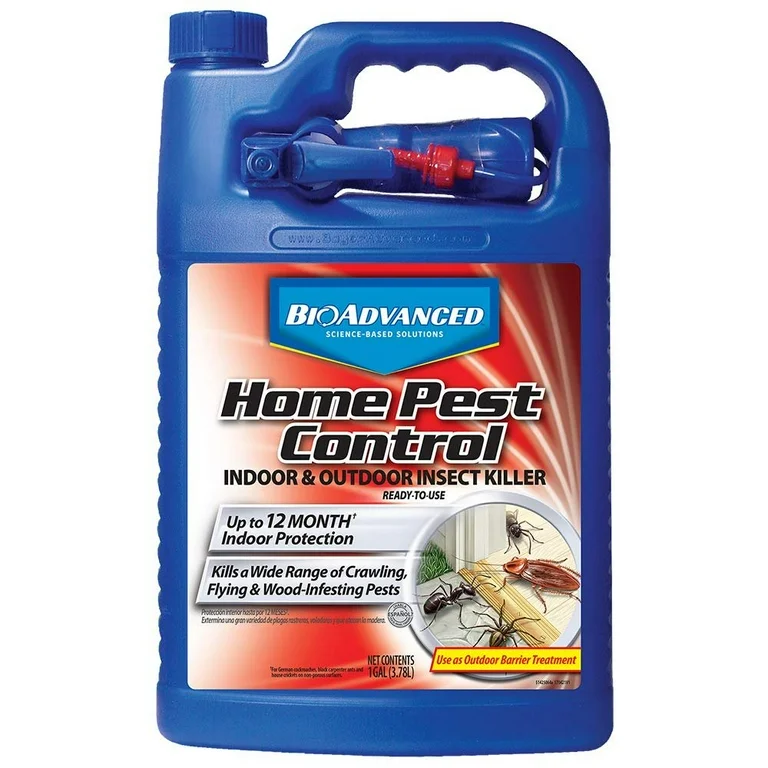A1 Charlotte Pest Control Companies - Your Regional Pest Specialists
A1 Charlotte Pest Control Companies - Your Regional Pest Specialists
Blog Article
Bed Bug Therapy Failure: Contrasting Chemical Vs. Non-Chemical Solutions
In the world of parasite control, especially when handling the consistent concern of bed insects, the selection in between chemical and non-chemical therapy options can be a pivotal one. Both methods use distinctive benefits and downsides, affecting elements such as efficiency, security considerations, and total expense. By checking out the nuanced details of each method, a clearer understanding of which course to go after in attending to a bed bug problem can be achieved.
Performance of Chemical Treatments
Chemical therapies for bed bug infestations have been commonly identified for their quick and potent effectiveness in eliminating these parasites. When taking into consideration the effectiveness of chemical treatments, it is crucial to comprehend that they can give a quick and extensive service to a bed pest trouble.
Furthermore, chemical treatments have the benefit of providing residual results, implying that they can remain to eliminate bed insects even after the first application. This recurring activity is specifically beneficial in combating any type of possible re-infestations. Additionally, the rapid action of chemical therapies can bring relief to people facing severe bed bug infestations, enabling them to restore control of their home swiftly.
Safety And Security Issues With Chemical Solutions
One vital element that calls for mindful consideration when making use of chemical options for bed insect treatment is guaranteeing the security of passengers and the atmosphere. Exposure to particular chemicals used in bed insect treatments can lead to respiratory concerns, skin irritation, or various other damaging responses, particularly in people with pre-existing problems or level of sensitivities.
Additionally, the environmental influence of chemical services is one more significant factor to consider. Some chemicals used in bed bug treatments might be damaging to useful pests, wild animals, and ecosystems if they leach right into the soil or water systems. It is vital to make use of chemical therapies sensibly, complying with safety and security guidelines, and taking into consideration much less poisonous alternatives to mitigate these dangers and make certain the efficient and secure administration of bed insect infestations.
Benefits of Non-Chemical Strategies
Considering the potential security worries and environmental impact related to chemical services for bed bug therapy, exploring non-chemical techniques presents an appealing alternative with numerous unique advantages. Non-chemical approaches supply a more secure option for families, specifically those with people, family pets, or youngsters sensitive to harsh chemicals. These techniques get rid of the risks of exposure to poisonous materials, decreasing the possibility for unfavorable health impacts. Moreover, non-chemical treatments are eco-friendly, as they do not add to air or water contamination, making them a sustainable option for parasite control.
Additionally, non-chemical remedies can be reliable in targeting bed insects, including hard-to-reach areas where chemical treatments might not permeate - A1 exterminators charlotte nc. Approaches such as warmth therapy, vacuuming, steam cleansing, and cushion coverings offer thorough obliteration without the usage of hazardous chemicals.
Limitations of Non-Chemical Treatments

Furthermore, non-chemical therapies typically call for multiple applications to achieve rentokil pest control successful elimination. This can be time-consuming and may not constantly guarantee complete elimination of all bed bugs and their eggs, especially in hard-to-reach or hidden places.
Furthermore, the success of non-chemical therapies heavily counts on correct application and thoroughness, which can be testing for people without specialist expertise. Inadequate application of non-chemical methods might cause incomplete obliteration, resulting in relentless invasions and the requirement for added therapies.
For that reason, while non-chemical therapies have their benefits, it is vital to recognize these restrictions and consider them when establishing one of the most reliable method for taking care of bed bug problems.
Cost Comparison: Chemical Vs. Non-Chemical Options
Provided the limitations connected with non-chemical treatments, an important aspect to evaluate in the context of bed pest administration is the cost contrast between chemical and non-chemical choices. Chemical therapies commonly entail the application of pesticides by experts, which can range from $250 to $900 per space, relying on the seriousness of the problem and the dimension of the area to be dealt with. On the other hand, non-chemical therapies like warm treatment or steam can be much more expensive, with expenses varying from $1,000 to $6,000 for a whole home. While the initial expense of chemical therapies may appear reduced, multiple therapies might be read review required to totally get rid of the problem, potentially raising the total expense. On the other hand, non-chemical choices might supply an extra lasting and green option, although they can be cost-prohibitive for some individuals. Inevitably, when thinking about the expense of bed insect treatment options, it is crucial to consider the in advance expenses against the effectiveness and long-lasting sustainability of the chosen technique.
Verdict

Taking into consideration the prospective safety and security concerns and ecological influence associated with chemical services for bed pest therapy, discovering non-chemical methods offers a promising option with several unique look at these guys advantages.Given the restrictions linked with non-chemical treatments, a crucial aspect to assess in the context of bed insect monitoring is the cost contrast between chemical and non-chemical choices. In comparison, non-chemical treatments like heat treatment or heavy steam can be more pricey, with costs ranging from $1,000 to $6,000 for an entire home. While the preliminary cost of chemical therapies might appear reduced, multiple therapies might be needed to totally eliminate the problem, potentially increasing the general expense.In verdict, when comparing chemical and non-chemical bed bug treatment choices, it is crucial to take into consideration performance, safety and security, advantages, limitations, and expense.
Report this page